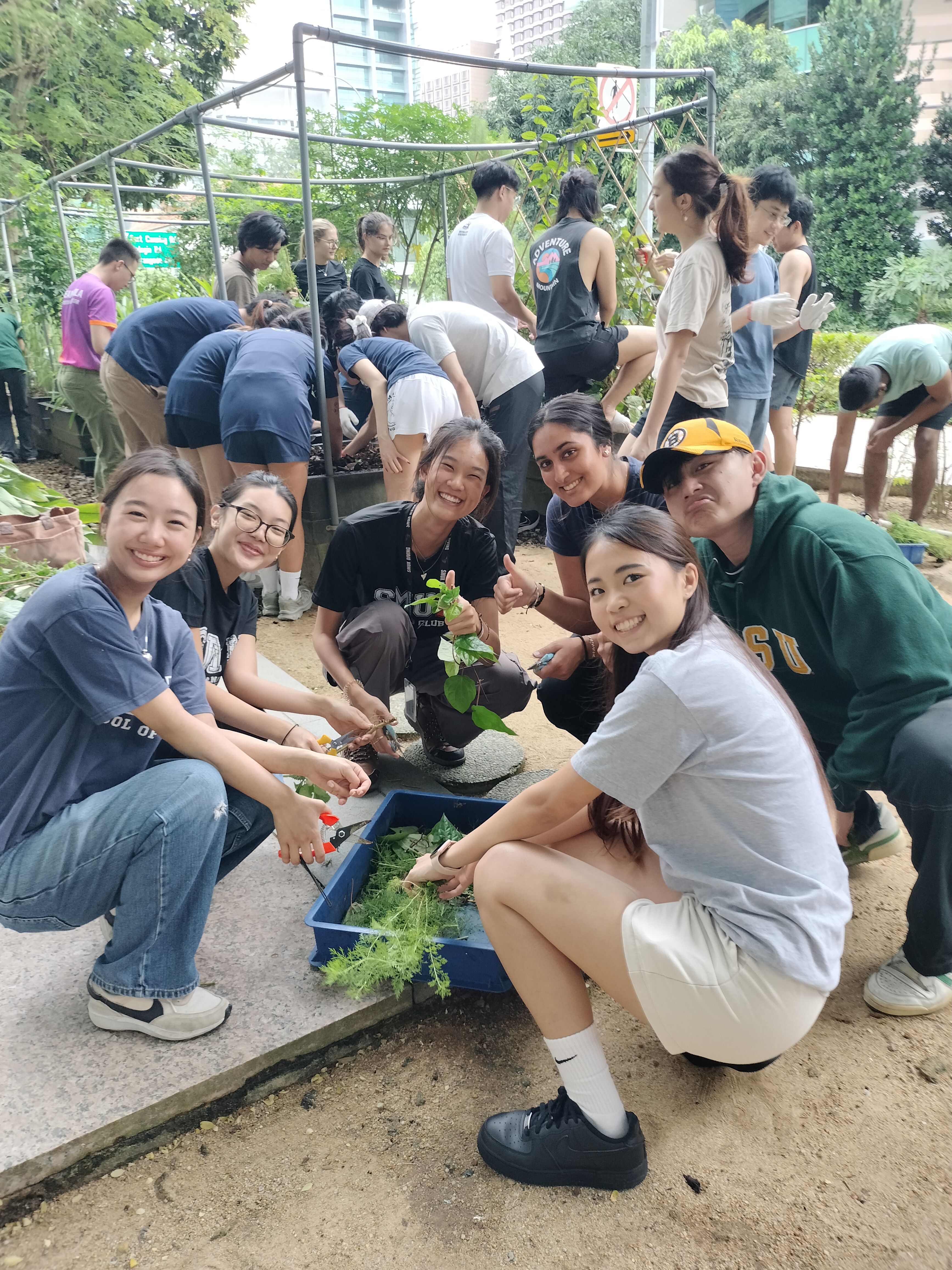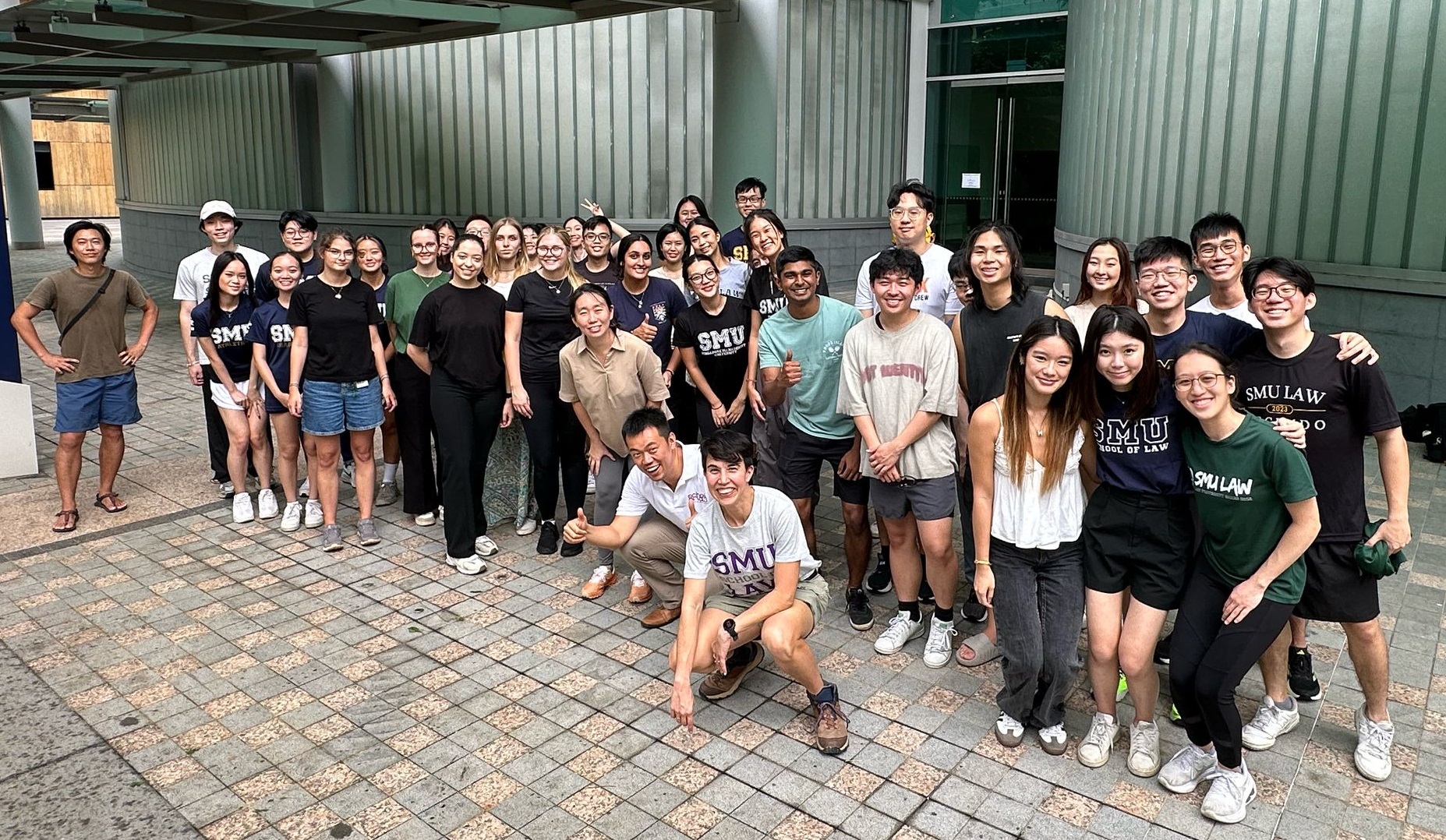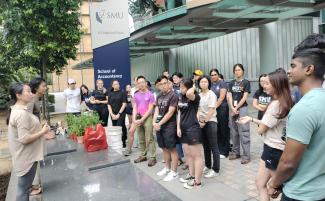
On an overcast Tuesday afternoon, Singapore Management University (SMU) undergraduates from a Law elective course were seen working hard on their group project… growing native edible plants. But why?
The activity was, in fact, part of the ‘Introduction to Sustainability Law’ course, co-convened by Yong Pung How School of Law’s Associate Professors Michelle Lim and Liu Nengye, and taught in partnership with SMU’s Office of Campus Infrastructure and Services (OCIS). The aim was to build students’ nature connectedness and sustainability competencies.
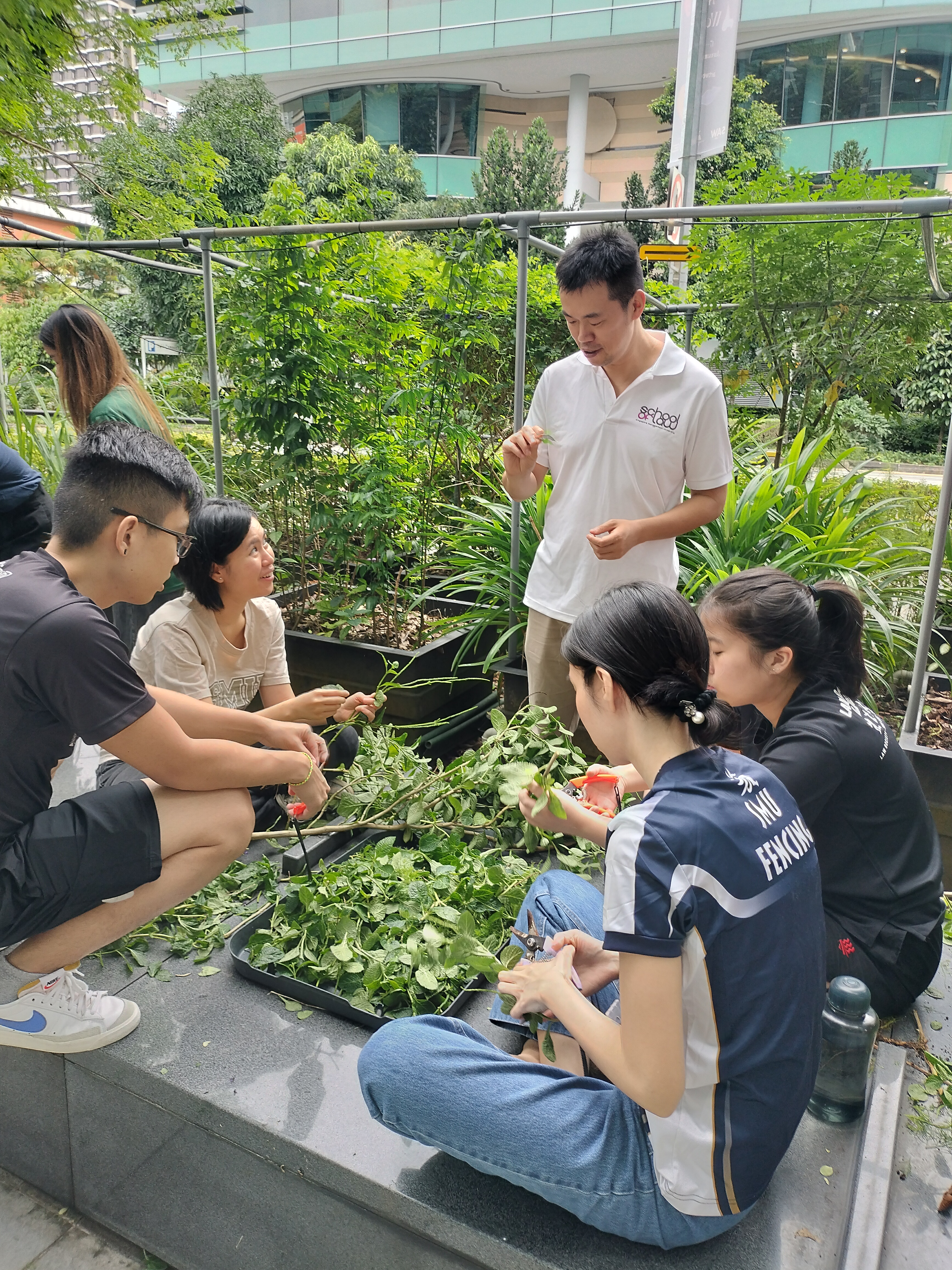
Besides classroom learning, students work in groups of five to six over 10 weeks, getting their hands dirty in urban farming and growing edible plants that are native to Singapore. At the end of the course, groups are tasked with harvesting their plants and preparing a dish for an in-class ‘pot-luck party’. Each group is also required to film and develop a five-minute video where they reflect on the sustainability competencies they have developed as part of the project; how the process has impacted their relationship with nature; and, drawing from their experiences from the group project, consider the legal challenges and opportunities for scaling up urban farming in Singapore.
“By getting students to grow native plants, we hope to develop in students a genuine appreciation of sustainability beyond the knowledge they can read about in a book or learn about in a traditional classroom,” explained Assoc Prof Lim.
On the collaboration, Dr Patrick Shi, Lead for Policies, Strategies and Initiatives at SMU OCIS, who oversees SMU’s existing urban farming initiative, SMU Grow, said, “We are excited to extend SMU’s existing sustainability initiatives and infrastructure into teaching and research. Not only is this aligned with the SMU Sustainability Blueprint’s strategy of cultivating a greener university, it is also a step towards making SMU a living lab platform where our community can utilise the campus to collaborate on and explore real-world issues.”
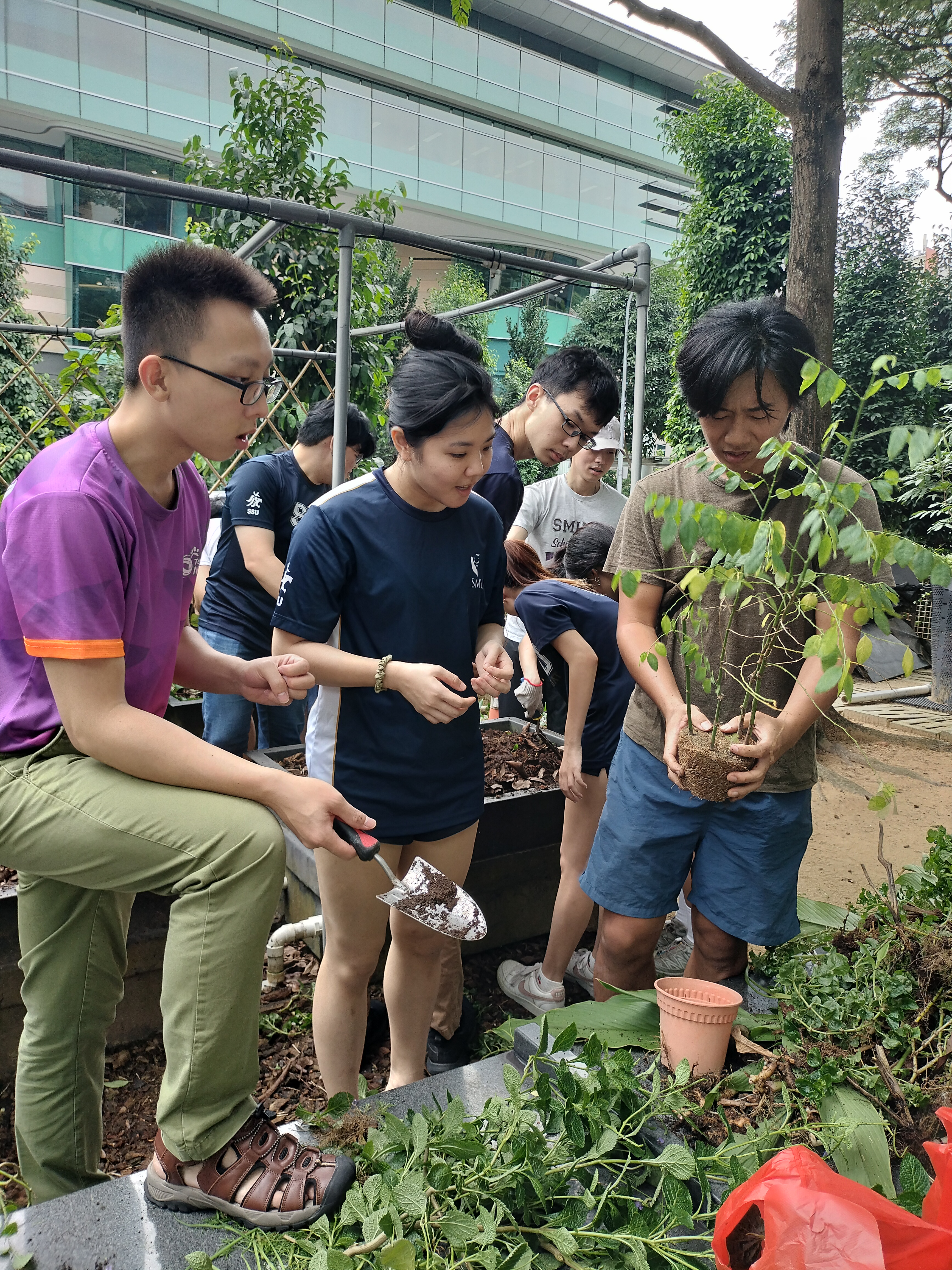
The urban farming portion in the Law elective also forms part of an educational research project funded by SMU’s Centre for Teaching Excellence (CTE). “The CTE Educational Research Seed Grant has enabled us to engage local sustainability businesses – Seed Folks and Soil Social. They are specialists in local regenerative agriculture as well as sustainable soil and composting, hence our students benefit tremendously from having the experts to guide them through the process,” said Dr Shi.
In 2024, the Working Group for the Reform of Legal Education in Singapore emphasised that future lawyers need to be able to engage with sustainability-related frameworks. The Working Group also underscored that to equip students for the profession of the future, legal education should go beyond the transfer of legal knowledge. Meanwhile, Singapore’s Green Plan 2030 includes the vision of becoming a ‘City in Nature’ and a ’30 by 30’ goal of growing 30% of Singapore’s nutritional needs locally by 2030.
It is anticipated that the urban farming group project of ‘Introduction to Sustainability Law’ will build students’ sustainability competencies and the capacity to engage in holistic approaches to the design, analysis and reform of sustainability law. In doing so, the project aims to advance the findings of the Working Group as well as the policy objectives of the Singapore Green Plan 2030.
“We want students to not only be able to understand sustainability and sustainability law. We also want them to be able to ‘do sustainability’. Ultimately, we want to equip students to combine theoretical and legal knowledge with real-world understanding of sustainability issues and the capacities to make a difference,” emphasised Assoc Prof Lim.
- End -
